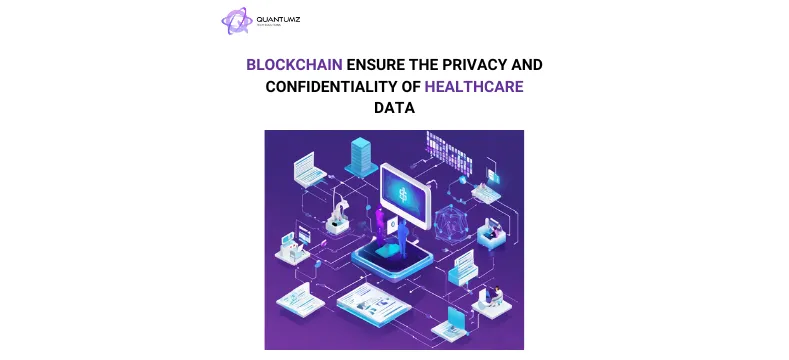Blockchain technology can help ensure the privacy and confidentiality of healthcare data in several key ways:
Blockchain technology can help ensure the privacy and confidentiality of healthcare data in several key ways:
- Encrypted Data Storage: Healthcare data stored on a blockchain is typically encrypted, ensuring that only authorized parties with the necessary cryptographic keys can access and view the information. This helps protect sensitive patient data from unauthorized access
- Decentralized Architecture: Blockchain's decentralized nature means that data is not stored in a central location, but rather distributed across a network of nodes. This makes it much more difficult for attackers to target and compromise the entire system.
- Immutable Audit Trail: All transactions and data changes on the blockchain are recorded in an immutable, tamper-resistant ledger. This creates an audit trail that can be used to track and verify the history of healthcare data, enhancing transparency and accountability.
- Granular Access Control: Blockchain-based systems can implement fine-grained access control, allowing healthcare providers, patients, and other stakeholders to precisely define and manage permissions for accessing and sharing data. This ensures that only authorized individuals or entities can view and interact with specific healthcare records.
- Patient-Centric Data Management: Blockchain empowers patients to have greater control over their own medical data, allowing them to decide how their information is shared and with whom. Patients can grant or revoke access to their data as needed, putting them at the center of healthcare data management.
- Pseudonymization and Anonymization: Blockchain networks can use techniques like pseudonymization and anonymization to further protect patient identities, separating identifying information from the actual healthcare data stored on the chain. Secure Data Sharing: Blockchain enables secure and auditable data sharing between healthcare providers, researchers, and other stakeholders, without compromising patient privacy. Smart contracts can be used to define and enforce data-sharing policies.
- Consent Management: Blockchain-based systems can incorporate robust consent management mechanisms, ensuring that patients have the ability to provide, revoke, or modify their consent for the use of their data, in line with data privacy regulations. By leveraging these privacy-enhancing features, blockchain technology can play a crucial role in addressing the complex challenges of healthcare data privacy and confidentiality, while empowering patients to have greater control over their personal medical information.


David Malan
Collaboratively empower multifunctional e-commerce for prospective applications. Seamlessly productivate plug and play markets.
Tara sing
Competently provide access to fully researched methods of empowerment without sticky models.
Anadi Juila
Collaboratively empower multifunctional e-commerce for prospective applications. Seamlessly productivate plug and play markets.